Comparing lengths Extra Challenge Worksheets for Ages 4-8
6 filtered results
-
From - To
Discover an exciting way to enhance your child's learning with our "Comparing Lengths Extra Challenge Worksheets for Ages 4-8". Designed to stimulate young minds, these worksheets offer engaging activities that help kids understand concepts of length through fun comparisons. Kids are challenged to measure, compare, and analyze objects of different sizes, supporting their cognitive development and critical thinking skills. Ideal for both classroom and home use, our worksheets make learning interactive and enjoyable. Give your child a head start in math and problem-solving with these expertly crafted educational resources. Start exploring today!
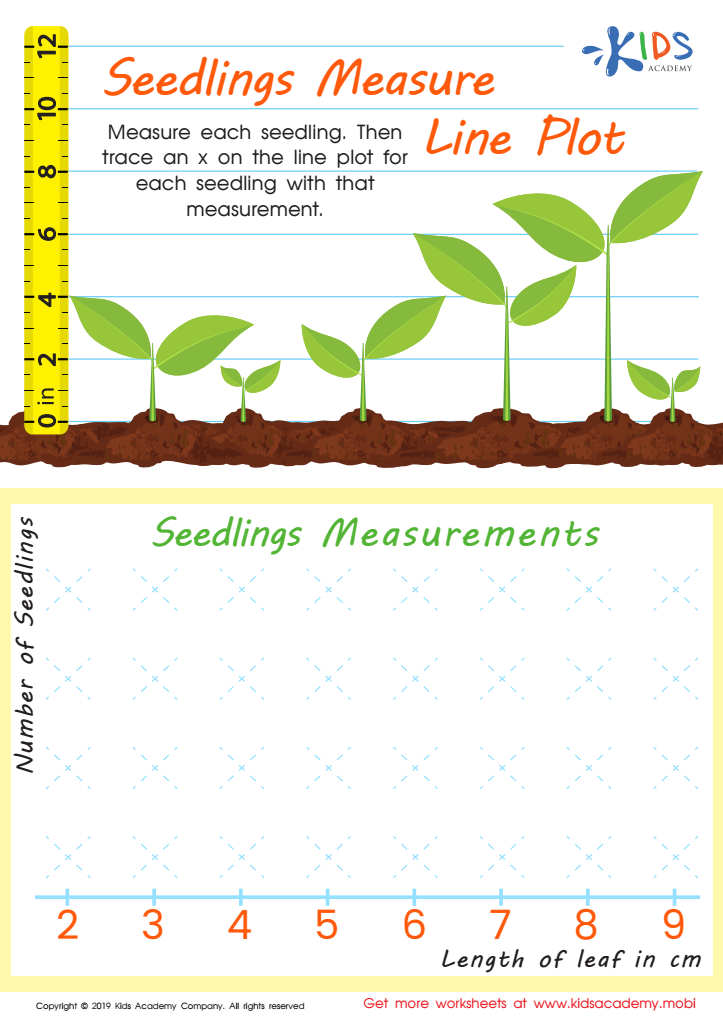

Seedling Measure Line Plot Worksheet
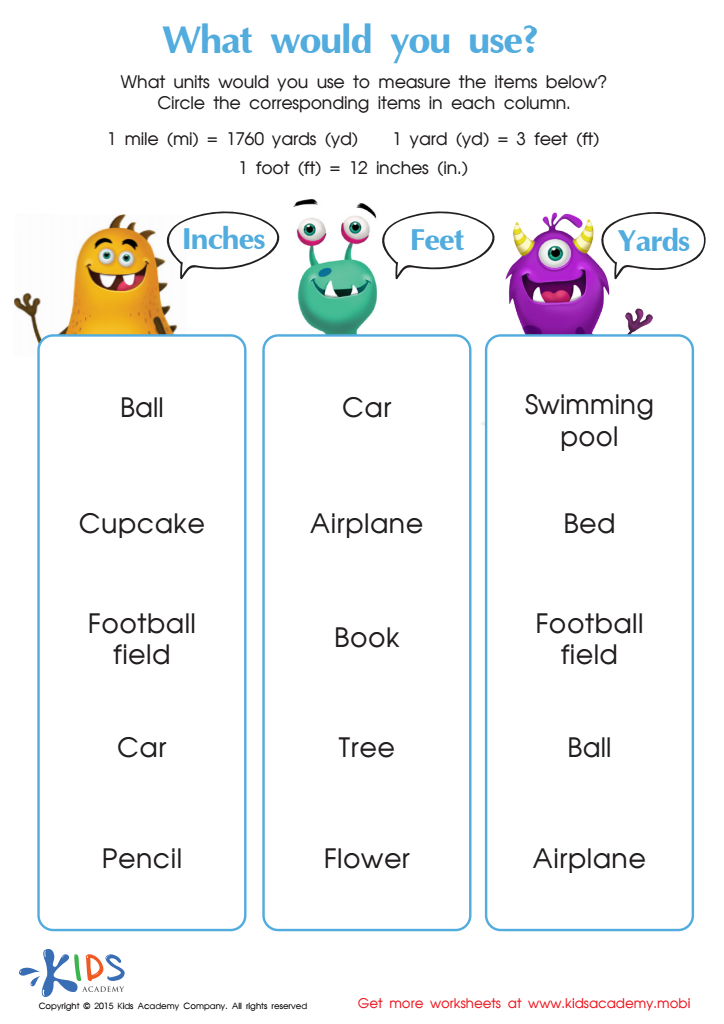

Learning about measuring objects in inches, feet and yards Worksheet
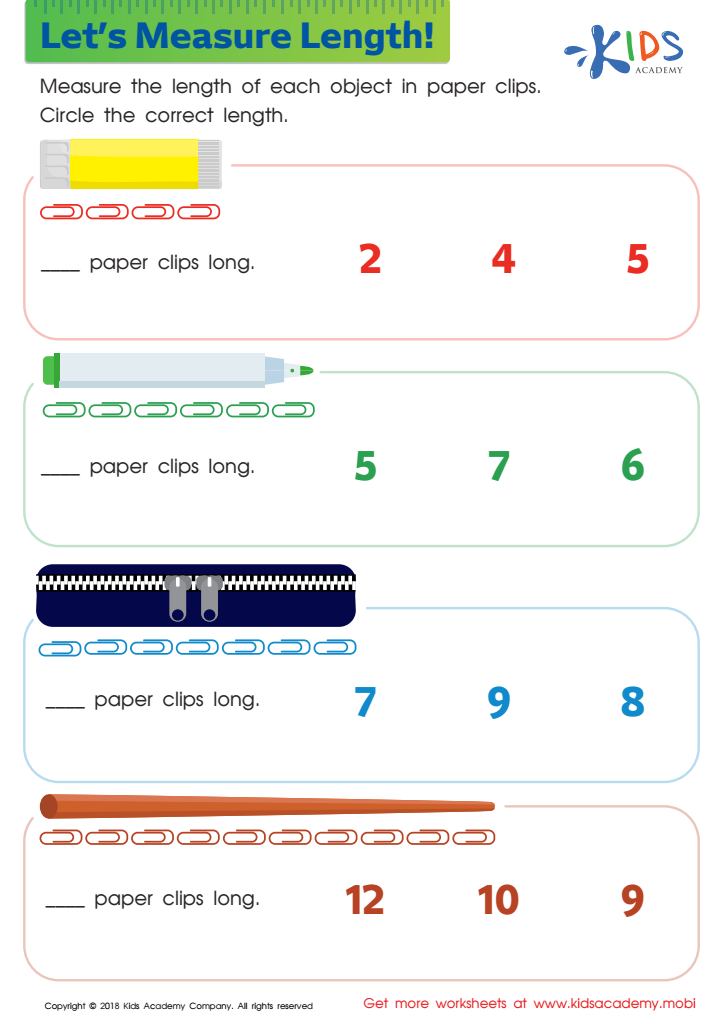

Lets Measure Length Worksheet
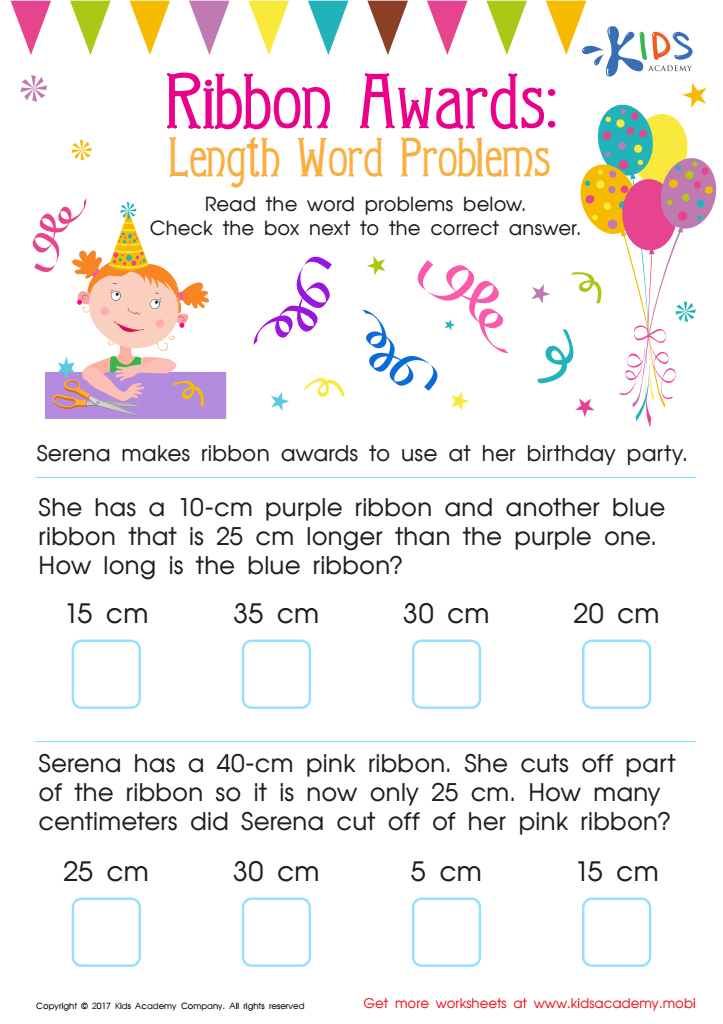

Length Word Problems Worksheet
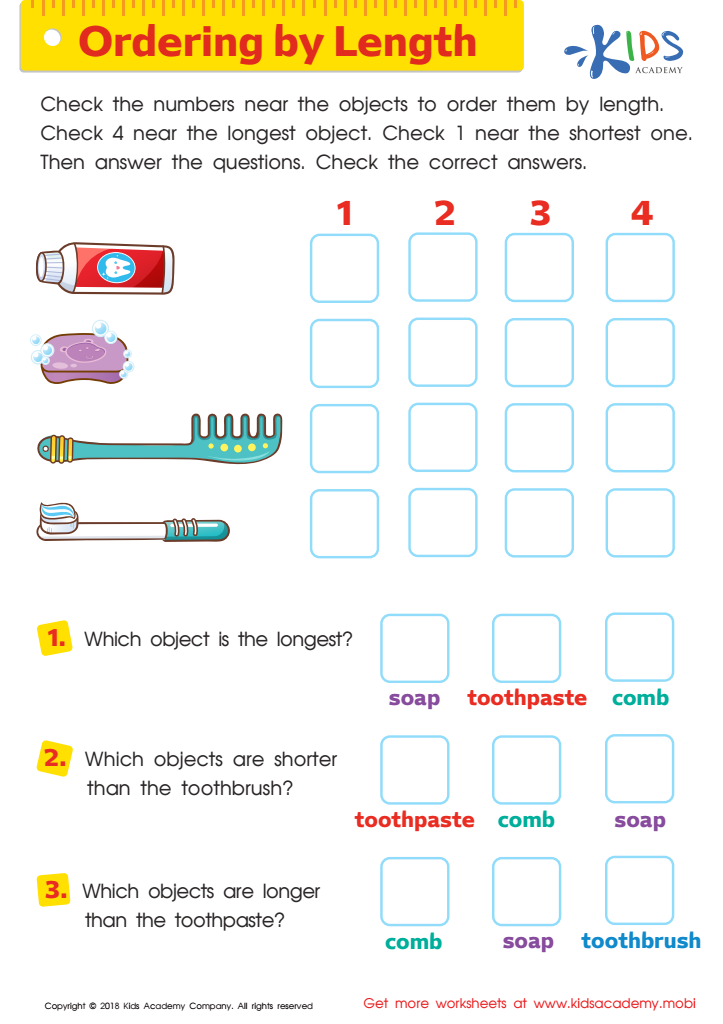

Ordering by Length Worksheet
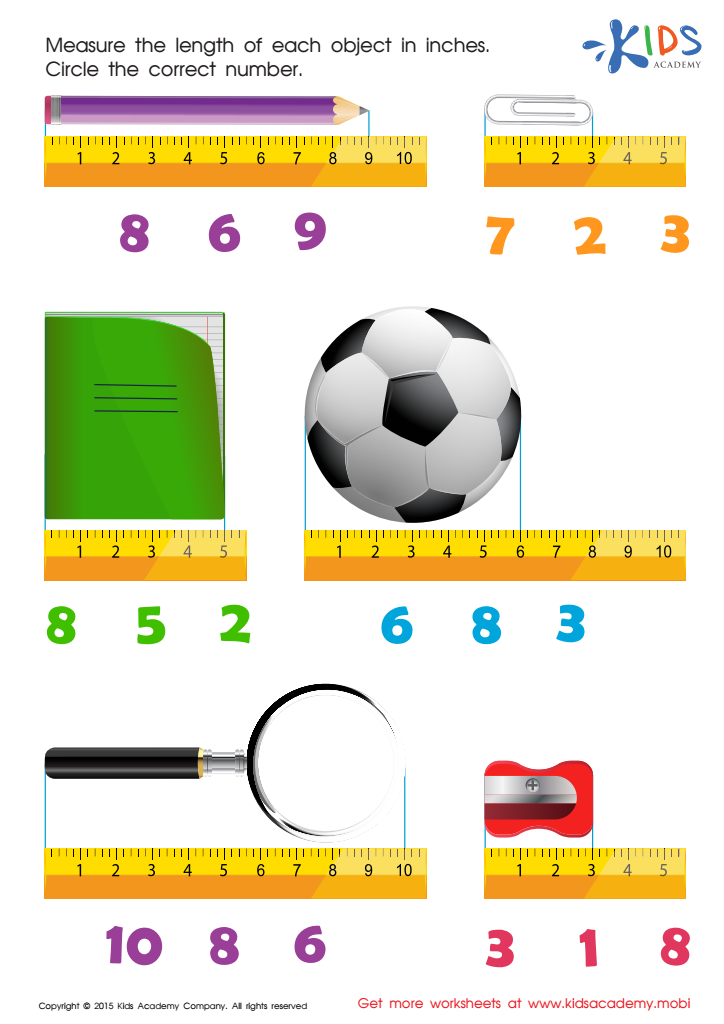

Learning measuring objects in inches Worksheet
Engaging children ages 4-8 in extra challenges that involve comparing lengths is essential for their cognitive and developmental growth. At this early stage, kids are developing critical foundational skills in mathematics, particularly in understanding measurement and spatial awareness. Comparing lengths offers a tangible and practical context for learning, allowing children to apply abstract concepts to real-world situations. This kind of challenge encourages them to observe, estimate, and measure objects, which enhances their problem-solving skills and analytical thinking.
Moreover, tasks that involve comparing lengths foster children's language development as they learn to describe objects using comparative terms like "longer," "shorter," and "equal." This enrichment of vocabulary is vital for effective communication. It also paves the way for engaging, collaborative learning experiences, as children often work in groups or pairs, sharing their observations and reasoning.
Parents and teachers should care about these challenges because they build a solid foundation for future mathematical learning. Proficiency in measurement is not isolated; it supports other areas like arithmetic, algebra, and geometry. By nurturing these skills early, educators and parents help children gain confidence, promoting a positive attitude towards math that can last a lifetime. Therefore, investing in such foundational activities is an investment in the child's broader academic and personal development.
 Assign to My Students
Assign to My Students







.jpg)









